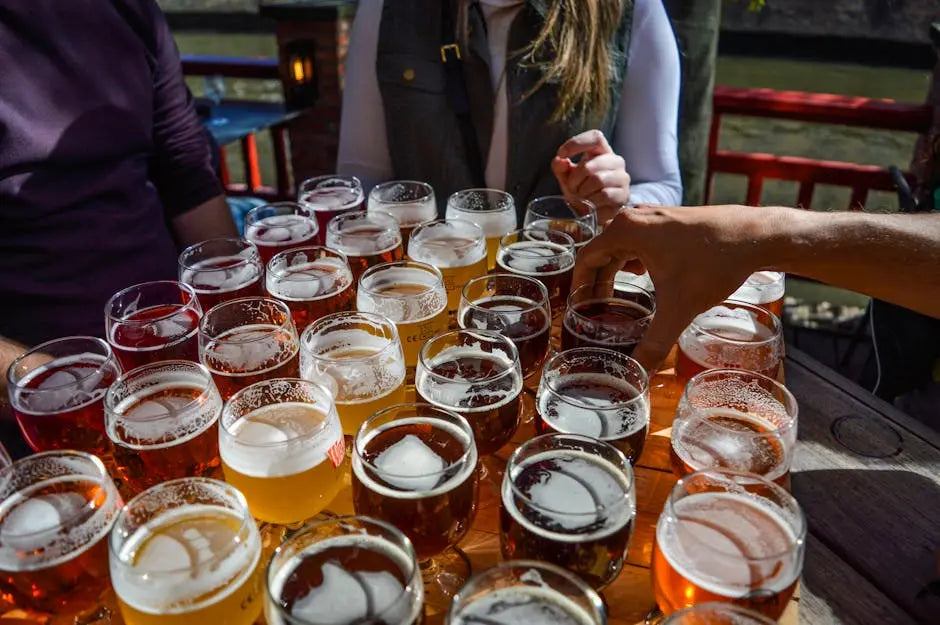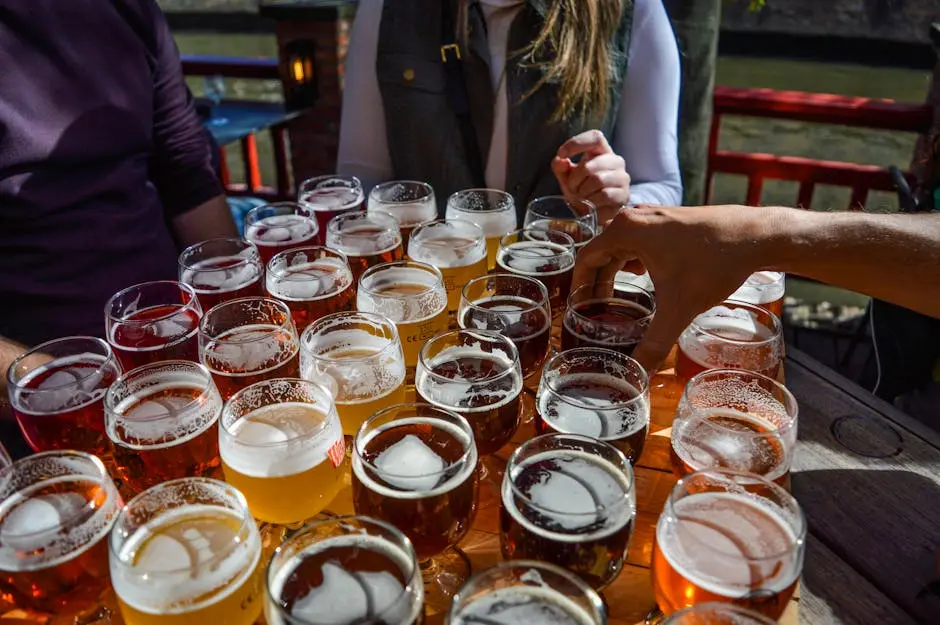
In recent years, the demand for non-alcoholic beverages has soared, driven by a growing awareness of health and wellness. Among the innovative trends within this space, artisanal brewing has emerged as a leader, captivating the palates of many with its unique flavors and quality ingredients. In this blog, we’ll explore why artisanal brewing holds the key to the future of non-alcoholic drinks and how it’s reshaping the beverage landscape.
The Rise of Artisanal Drinks in a Health-Driven World
As people around the world become more health-conscious, the beverage industry has seen a noticeable shift towards non-alcoholic options. Artisanal brewing, with its focus on quality and natural ingredients, aligns perfectly with the desires of today’s consumers seeking healthier drink alternatives.
This growing health awareness has seen an explosion in the demand for beverages that carry fewer calories while still offering an indulgent experience. As a result, consumers are gravitating towards artisanal products which enhance natural flavors and have minimal processing. The future of craft brewing is anchored in wellness and authenticity, providing an experience that’s not just about drinking, but savoring every sip.
Craftsmanship and Quality: The Hallmarks of Artisanal Brewing
Artisanal brewing is defined by its dedication to craftsmanship and attention to detail. By utilizing traditional brewing methods and sourcing high-quality, often local ingredients, brewers are able to create drinks that offer depth, complexity, and unparalleled taste—qualities that readily differentiate these beverages in the marketplace.
The commitment to quality begins at the ingredient level. Whether it’s the rich earthiness of locally-sourced barley or the aromatic nuances of hand-picked hops, every component plays a crucial role in crafting a beverage that’s both delightful and distinctive. This meticulous care carries through to the brewing techniques employed, oftentimes passed down through generations, refined and adapted to meet modern tastes while honoring timeless traditions.
Moreover, artisanal brews provide a narrative in every bottle or can, embodying the passion and creativity of its brewer. This personal touch reverberates through each sip, creating a connection between the consumer and the artisan. It’s not just about quenching thirst; it’s about appreciating the artistry in brewing.
Innovation and Variety: Expanding the Non-Alcoholic Beverage Palette
The creative freedom afforded by artisanal brewing allows for a wide range of non-alcoholic beverage flavors that cater to diverse tastes and preferences. From fruity infusions and spiced blends to floral notes, the possibilities are endless, showcasing the innovation and diversity this brewing method brings to the table.
Experimentation is at the heart of artisanal brewing. Brewers are constantly willing to push the envelope, exploring unique ingredient pairings and innovative brewing processes to entice even the most discerning palate. This spirit of experimentation can lead to exciting new flavor experiences—imagine a refreshing ginger or hibiscus brew perfect for a summer day or a cozy cinnamon-spiced option for the colder months.
Indeed, the beer trends suggest that embracing this diversity not only keeps consumers engaged but also broadens the horizons of what non-alcoholic beverages can truly be. Artisanal brewing harnesses this potential, continually pushing flavors, styles, and profiles beyond traditional boundaries, inviting tasters to embark on an exploratory journey through taste.
Sustainability and Community: The Ethical Appeal of Artisanal Brewing
Artisanal brewing often emphasizes sustainability by incorporating eco-friendly practices and supporting local economies. By choosing locally-sourced ingredients and reducing waste through environmentally conscious production methods, these brewers contribute positively to their communities and the planet.
Fostering community and commitment to sustainability often go hand in hand. Many artisanal brewers engage directly with their local environments, focusing on reducing carbon footprints by embracing renewable energy and biodegradable packaging solutions. These ethical considerations reflect an understanding of their broader impact and a desire to leave a positive mark on the world.
As we move further into a future where the demand for conscious consumption intensifies, it’s clear that sustainability efforts will be pivotal. Artisanal brewers are pioneering in this respect, using their platforms to champion not only great taste but also ethical responsibility, nurturing both our communities and our planet.
A Growing Market: The Future of Non-Alcoholic Artisanal Brews
The artisanal brewing industry’s growth suggests that this trend is more than a passing fad. With increasing consumer interest and expanding accessibility, non-alcoholic artisanal beverages are set to become a staple in the drink market, paving the way for a future where flavorful, healthful, and sustainable options reign supreme.
Artisanal non-alcoholic brews are steadily capturing greater market share as consumers carve out a demand for sophistication without the hangover. As technology and trends evolve, and consumers become more discerning in their preferences, it is clear that the marketplace is ripe for disruptive innovation. The coming years promise even more remarkable ingenuity from brewers who are passionate about breathing new life into non-alcoholic options.
Toast to a Healthier Future with Artisanal Brews
Artisanal brewing has not only redefined the non-alcoholic beverage market by offering high-quality, delicious alternatives but also promises a sustainable and innovative future. As this trend continues to grow, it encourages us to appreciate crafted experiences, supporting local communities and promoting healthier lifestyles. Whether you’re a dedicated connoisseur or new to the world of artisanal brews, there’s something to be celebrated in each carefully crafted sip.

